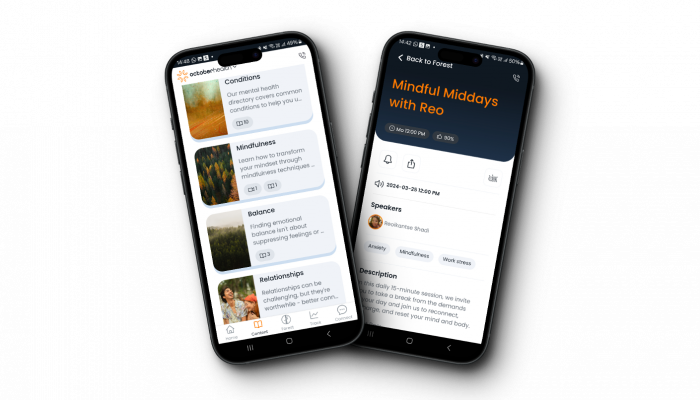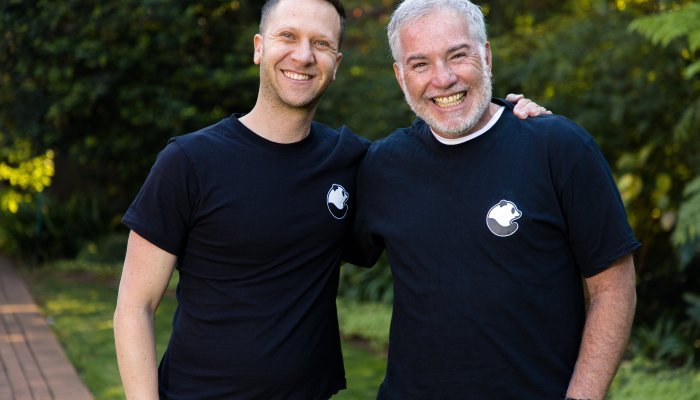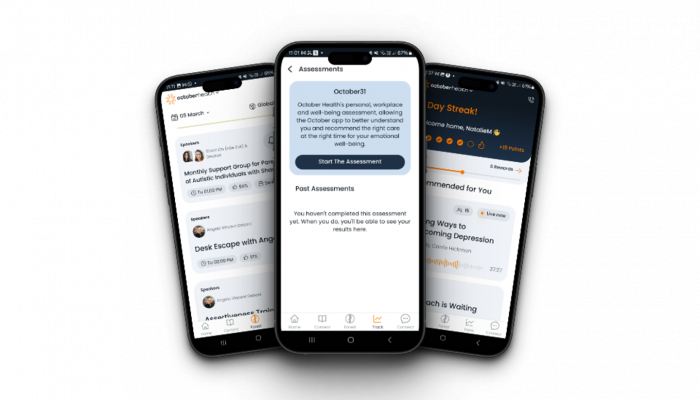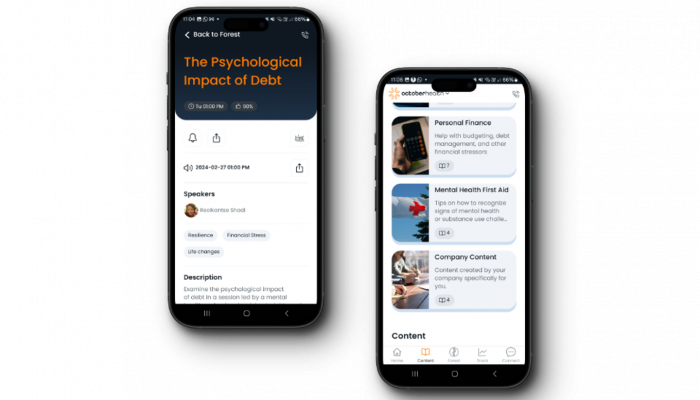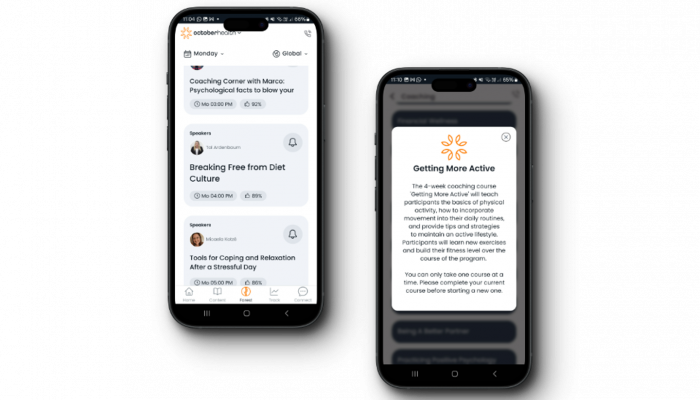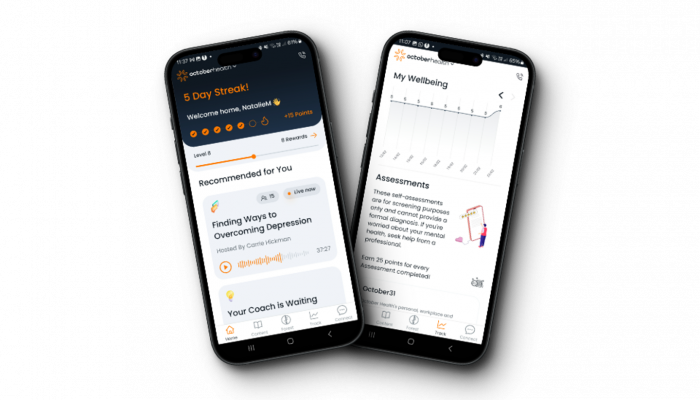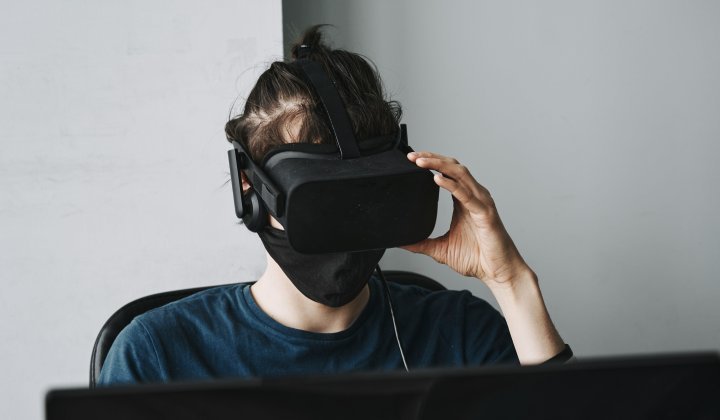Those of us who work and have an interest in wellness and personal development know that mental health challenges are a growing concern. Reports such as Aon’s 2024 Global Medical Trend Rates Report flagged mental well-being as a “cause for concern” in South Africa and the Mental State of the World 2023 report by Sapien Labs ranked South Africa as having the most depressed or struggling individuals (slightly better than the United Kingdom).
A recent study by AXA UK says the impact of “poor mind health in the workplace” cost the UK economy £102 billion (about R2.4 trillion) in 2023. The figure in South Africa is estimated by the London School of Economics at R161 billion annually, due to everything from absenteeism to premature mortality.
During a recent conversation, my GIBS colleague Lorraine Morris, the head of corporate education delivery, put it this way, “Covid has led to people becoming more aware around wellness. It was there, but now it’s become something that everyone is looking at and talking about … to find means and ways of actually dealing with the situation. The fact that you can be vulnerable and speak up is important.”
Morris’s words echo the conversations we consistently have with businesses in our network, and with the leaders who come to us for professional coaching support and academic education. Since Covid, we have seen many leaders gravitating towards a more humane approach that considers the whole person, and does not regard them simply as cogs in a factory machine.
As this human awareness continues to shift into mainstream thinking, it has become more pressing to find ways to support and encourage people. Fortunately, technical progress in the form of artificial intelligence (AI) – as epitomised by the rise of ChatGPT – is in step with the push to deliver mental wellness support at scale.
These are the very technologies that enabled GIBS partner October Health to create a holistic wellness app built on data and powered by AI. The difference between this app and other mental health tools is that the founders are not focused only on dysfunction; their ambition remains to help individuals cope and thrive.
In 2023, GIBS officially partnered with October Health (or Panda, as originally known) to support our student body through better access to mental health and wellness resources.
Why create a GIBS wellness app?
The GIBS wellness app came about following a discussion with October Health co-founders Allan Sweidan and Alon Lits. Lits is well-known in South African business circles for bringing Uber to South Africa. Sweidan is a clinical psychologist whose legacy includes building the largest psychiatric hospital group in Southern Africa, Akeso, which was sold to Netcare in 2018. The duo share a vision of disrupting the global mental health industry through the intelligent use of technology.
During a vodcast with GIBS Dean Professor Morris Mthombeni, Sweidan explained that October Health is powered by the vast amounts of data generated through individual engagements. This data is collected, measured, and managed anonymously and in accordance with strict privacy laws and regulations.
Generally, data on mental health is collected at the point of care, once the person is in crisis. October Health’s careful use of AI technology aims to “help people much earlier on in their journey and … prevent them having a crisis down the line”. The best way to do this is to make it easy and fruitful to engage with the platform, thus encouraging ongoing interaction. Data gathered from these encounters can, over time, begin to highlight the best ways to support people working under stress and at the peak of their abilities, thus helping them excel and build resilience without burning out.
As Professor Mthombeni observes, a lot is going on behind the scenes when you log into your October Health app, but what is presented “to me as the user, and what I receive, is pretty straightforward”.
That user-friendliness was attractive to GIBS when October Health came knocking.
Melding minds
While some global universities have chosen to create these platforms in-house, after meeting with Lits and Sweidan, GIBS felt confident that our values and approach were aligned. This was also the case with October Health. As Sweidan recalled, “Through meeting with Professor Morris [Mthombeni] and [another member of GIBS faculty], Dr. Frank [Magwegwe], and with Alison [Reid], we found some real kindred spirits. People who are really invested in mental well-being and in helping people while, at the same time, understanding that stress is a daily part of life and business.”
The synergy didn’t stop there. With the October Health focus on corporate wellness, it made sense to support corporate leaders going through the pressure of full- or part-time study while still holding down demanding positions and shouldering personal responsibilities. As Lits explains, “The product is a natural fit for someone in the business school environment. You are dealing with work pressures, which don’t slow down just because you decided to take on the extra burden of furthering your skill set, and personal life or personal responsibilities. Business school students are under immense pressure.”
Embarking on a new learning journey is an exciting and stimulating experience, but at times the demands can be challenging and uncomfortable. Yes, the ability to build grit and resilience is often an outcome for students, but how each individual handles the ebbs and flows, peaks and pressures is uniquely different, so awareness and access to early care is essential to ensure support is always available.
It is for this reason that GIBS has adopted a proactive stance to supporting student well-being. We don’t wait until the student is at breaking point. We offer a sustained wellness experience across the learning journey. It is our hope that GIBS students will return to their workplaces and use our model as a blueprint for managing corporate employee wellness.
That said, it is worth noting that the intent behind a student-focused wellness app is different to a corporate offering in that it must be tailored to expressly support students through their educational experience. While both have tremendous benefits to offer, their use and adoption are different, with educational tools casting a wider wellness net that considers the student as a learner, an executive, a leader, and a human being juggling multiple responsibilities while still seeking to perform at optimal levels.
Given these multiple touchpoints, our holistic wellness focus is something Lits applauds. “I did an MBA overseas 12 years ago, but they didn’t have any of the support that GIBS provides,” he says. “GIBS offers a lot of human-led interventions through coaching pods, mentorship, and other resources. Our intent is to supercharge those efforts so we can equip individuals with the tools they need to build resilience, build coping techniques, deal with challenges, have an outlet, and connect with individuals who are in similar circumstances. Our solution is really about connecting individuals to community and psycho-education.”
Even now that the app is available to GIBS students, GIBS and October Health continue to meet regularly, possibly more than would be expected with a corporate client, due to the nuances of class cohorts and student needs. These interactions offer an opportunity to spot emerging trends and consider additional solutions. In time, the intention is to solidify these insights into a report, leaning on Magwegwe’s ongoing research learnings.
What does this mean for our students?
While these academic potentialities will hold value for corporate South Africa in time, we believe the most important endorsement must come from our student body.
The corporate education division, which Morris heads, began offering October Health access to delegates from August 2023. “The idea was not just to be there from a professional and learning perspective, but from a wellness perspective,” she recalls.
Uptake from corporate clients has been positive, with only two companies declining the use of the app for their people because they already had a wellness app in place.
Morris explains that “we upload all delegates for the duration of their programme and give an additional three months’ access” on completion. To date, 350 students have signed up on the custom and open programme side, says Morris. Given the movement of students on and off campus over a year, adoption rates are lower than one might achieve in a corporate environment – 17.26% versus 52% – with upticks factored in for the start of the academic year and ahead of a new course or academic programme.
As of April this year, 1 222 conversations were had with the app’s AI companion, Luna, with 72% of respondents returning for more. Plus, 71 five-minute AI-powered ‘coaching’ courses had been rolled out. More insights extracted from the data are shared in this issue of Acumen by Dr. Magwegwe, who has been a driving force for this project and a keen advocate for mental health support at our business school.
[Magwegwe wrote the Mental Health article, also in this issue, we may want to link to it?]
For Morris, the rollout of the app reinforces one of GIBS’s strategic pillars: to humanise the workplace, and to find like-minded partners to support this journey. Internally, Morris and her team ensure that they align their programme facilitators and messaging behind a strong wellness message that includes discussions around time management, healthy habits, mindfulness, and burnout prevention.
Having trialled the app among GIBS staff before opening up to the student body, Morris tells me she still uses our app to track her own work-life balance, so she can continue to create healthy habits for herself. This is exactly what October Health is setting out to achieve. By reducing the stigma around mental health and wellness, the national and global narrative will begin to shift. This will support a proactive rather than crisis-driven approach.
“You look at the best athletes in the world; what are they doing?” asks Lits. “If their minds are not in the right place, then they’re not going to be able to perform in the way they’re expected to. The working world is no different. You may have skills to thrive in the working world, but if your mind is not in the right space, then you will not be able to perform.”
In short, Lits says, “We are trying to reposition mental health and mental health fitness as something aspirational, that everyone should want to develop, not just something you consider when things go wrong.”
Campuses that care
GIBS is not alone in rolling out technology to support students through the demands, stresses, and strains that often accompany higher education studies.
At the University of Texas, a Thrive at UT app was developed in-house to support student well-being with information, mindfulness teaching, and access to a supportive community. Similarly, the Inside Higher Ed website reports that the University of Michigan’s Stay in the Blue app helps students monitor their alcohol consumption, while the University of Alabama at Birmingham’s UABWell app gives students access to a crisis line and helps support healthy daily habits.
There are also student-specific apps such as UniWellBeing – used by leading institutions like the University of Exeter in the UK, and Australia’s Macquarie University and Curtin University – which act as early prevention and intervention mechanisms.
The reason for this growth in tech-enabled wellness support is partly attributable to the effects of Covid-19, but also the growing realisation that the mental and emotional demands put on students can lead to a rise in depression and anxiety. A 2018 paper by Harvard University, exploring the mental health challenges facing doctoral students in economics programmes in the US, found that “18% of [post]graduate students experienced moderate or severe symptoms of depression and anxiety – more than three times the population average – and 11% report suicidal ideation in a two-week period”. The longer students remained in higher education, the more these symptoms increased.
Supporting your holistic mental wellbeing
GIBS is committed to helping our students flourish and excel. To support this journey, we provide access to:
- Class mentors who can support you each step of the way.
- Leadership development and coaching for individuals as well as in groups and syndicates.
- ICAS support services for confidential financial and leadership goal-setting and family support. Students can dial 0800 212 719 toll-free.
- The October Health wellbeing app. A safe and anonymous resource that puts care, information, and professional support in your hands.
How do you use our wellness app?
- Scan the QR code in the magazine or search for ‘October Health’ in your app store and install the app.
- Click ‘Sign up’ and then ‘Create an account’.
- Use your GIBS student email address to sign up.
- Follow the on-screen prompts to customise your profile.
Alison Reid is the head of personal and applied learning at GIBS, which offers applied leadership development and coaching for all levels of management. Reid’s academic background lies in the field of sports psychology, leadership development, and coaching. Reid’s professional background and training is as a facilitator and coach, and her areas of interest include leadership development for sustainability, for human-specific skills of the future, and for humane organisations.


